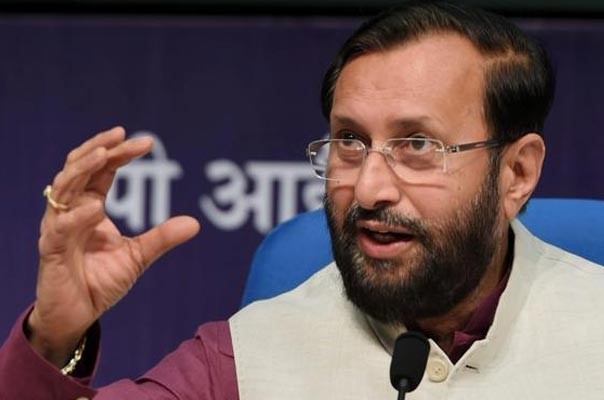PTI photo
By
Bikash Mohapatra
The Ministry of Human Resource Development’s Global Research Interactive Network (GRIN) attempts to address India’s “brain drain” issue, and convert it into “brain gain,” while simultaneously focusing on improving the quality of education in India and developing an innovation culture.
Even as he began his speech at the International Conference on The Changing Landscape of Internationalization of Higher Education, organized by the Symbiosis International University in his home town of Pune, Union Minister for Human Resource Development (HRD), Prakash Javadekar, was probably aware it would be a repetition.
It was therefore, imperative that he began differently. So a question it was.
Is Internationalization of Higher Education only a business proposition?
His response to the same was a firm negative.
“Let’s celebrate the diversity and respect each other, because that’s what globalization requires,” said Javadekar, adding, “We need to have diversity in our learning process.”
Since he took charge of the HRD ministry last July, Javadekar has been reiterating, rather rephrasing his words while trying to convey the same thing over and over again.
“When I became the Human Resource Development minister I was asked what will be my priority. I said my first priority will be quality, second will be quality and third will also be quality,” he explained earlier this year.
Over the years quality is the parameter where India has suffered the most with its best brains preferring to move abroad to pursue their dreams.
Narendra Modi’s government has taken up the challenge of addressing this issue of “brain drain” and his cabinet minister has been diligently explaining his government’s endeavor to this end for quite some time now.
“Why do the best of the best brains from India go abroad?”
“Why can’t we keep our best brains here in India?”
“How can we ensure people invest and innovate under the Make in India initiative and sell the outcome as Made in India?”
“How to turn ‘brain drain’ into ‘brain gain’?”
These have been some of the questions raised by Javadekar in his speeches over the last few months. To his credit the minister has also taken pains to explain what exactly his government is doing to address the issue. The Pune Conference was no different.
“We are now giving the Prime Minister Scholarships. It will be INR 75, 000 to 100, 000 per month, and this is not a small amount,” said the minister.
“We have also started a National Academic Depository (NAD),” he added, before proceeding to elaborate on his point.
“Every time Indian students used to go to foreign countries they used to have transcriptions, and it used to take three months. Now we have a depository, where all your documents are stored and will be immediately available.
“These documents are authenticated and verified so that there are no problems, no waiting and no separate queues. That’s the best thing that has happened. From this year all universities and educational institutions, and whatever past academic record is available, will be put in NAD.”
However, the flagship endeavor of the Modi government in general, and the MHRD in particular, happens to be Global Research Interactive Network (GRIN).
“We are launching GRIN, a program wherein we will be giving USD 3 billion over the next three years through higher education finance agencies,” explained Javadekar.
“The budget provided will be Rs 2000 crore but through that amount we will leverage Rs 20,000 crore, i.e. USD 3 billion, and that will be invested in upgrading and improving the research infrastructure in our best institutes,” he continued, adding, “As part of this program we are also providing the students with the option of going abroad for a term, on our expense, and get the best guidance from there as well.
“In India also we are coming up with 20 world class universities. We have finalized the guidelines, which will be declared as a government policy very soon.
“These world class institutes, 10 in the private sector and 10 in the public sector, existing and new ones as well, they compete on a challenge mode with their vision, action plans and records that exist. We eventually aim to have a global ranking for these 20 institutions.”
The idea behind GRIN is a pragmatic one to say the least.
“We believe only those countries progress whose universities are good. So we are trying to make universities good on the quality roadmap,” explained Javadekar.
“We are trying to improve the quality of education in India and also attempting to develop an innovation culture,” he added.
On paper GRIN looks promising. Having said that there is a huge divide between deliberation and action, between assertion and execution, between a dream and reality.
The challenge for the Modi government in general and Javadekar in particular, lies in bridging this divide.



No Comments Yet!
You can be first to comment this post!